Four of the five berths at the
The regime has a monopoly on rice exports and said this week that it planned to meet commitments to sell rice, whose price has reached record highs on the world market, to countries such as Bangladesh and Sri Lanka, even though Myanmar's main rice-producing region suffered the worst damage from the cyclone, which hit a week ago.
The storm caused massive destruction in the
As rice was loaded onto the freighter, people in nearby villages said authorities had handed out rations of rotting rice, apparently from ruined stocks in the port's massive warehouse. The storm soaked about 40% of the stored rice, worth millions of dollars, said the chief driver, who requested anonymity to avoid problems with government officials.
Tropical Cyclone Nargis packed winds of 120 to 150 mph, snapping large trees and concrete fence posts, and bending steel electricity poles at a 45-degree angle. About 23,000 people died, according to officials, with tens of thousands still missing. One survivor described the sound of the storm as otherworldly, a high-pitched howl mixed with a blood-curdling screech.
The wind pummeled the
Kyaw Win, 31, head of the
The village is only 15 miles from
Headed by movie star and opposition supporter Kyaw Thu, the association normally provides coffins so the poor can get a proper burial. But since the weekend storm, the charity's pickup trucks and volunteer workers have been one of the main lifelines in the disaster zone.
They delivered 4.4 pounds of rice each to many families Wednesday and promised to return in a few days with more.
Villagers said that they saw cartons of instant noodles unloaded at a government office and that officials kept them for themselves.
The only help the villagers received from the government was half a pound of rotting rice, they said, and the absurdity made them laugh.
Residents said they were used to the military, which has ruled
The storm flattened the wood-frame home of Kyaw Kyaw, 38. Like most of the village, Kyaw Kyaw, his wife and their two small children had taken refuge across the road in a Buddhist monastery that remained standing despite losing its roof.
A bus conductor, Kyaw Kyaw earned $1.50 a day before the cyclone struck. The storm knocked out power to most areas in the south, so the plant that provides compressed natural gas for the buses is shut down.
Villagers are helping one another rebuild their homes with materials they can scrounge locally, but like Kyaw Kyaw, they need donated food to survive.
Thousands of homeless people across the devastated countryside in the south are living anywhere they can, in restaurants, Buddhist temples and ruined buildings, any place that offers a little shelter from the heavy rain that is expected over the coming days.
One family crouched like cave dwellers in the remains of their collapsed shop, where they had just enough space between the fallen roof and the floor to move around on their haunches. Others scavenged in the rubble of destroyed and abandoned homes for usable pieces of wood and corrugated roofing.
Already poor, the eyes of many of the villagers were bloodshot and yellowing in wan, weary faces.
One mother who needed a rest from carrying her infant put him on the fallen roof of a house and gave him a small piece of a shredded bamboo wall to play with, as casually as she once would have put him on a chair.
By late Friday, it remained unclear what the military regime might allow by way of assistance, including help from the
The generals have allowed several cargo planes carrying supplies from the United Nations and neighboring countries such as
The U.N. stopped relief flights Friday after the regime seized all foreign aid. The agency later announced that it would resume flights today.
In
The country's biggest port, officially known as Myanmar International Terminals Thilawa, would be a likely link if the regime has a change of heart and allows a large and sustained international aid effort.
The container port, near the mouth of the
The port at Yangon,
Local charities know that the affected people don't have time to wait for foreign governments to persuade the generals to allow outside help on the scale that is needed to avert another disaster from hunger and disease. But their resources are limited.
Nearly 1,000 people who lost their homes moved into the Mandalay Beer Station, a state-owned roadside restaurant near here. Their main meal Friday was a watery soup of boiled rice, fish sauce and onion shoots.
The servers ladling soup into tin cups and metal bowls on the beer hall's concrete steps slapped and shouted at children who dared to ask for second helpings.
An official watching the chaotic scene said he was afraid because the people had lost their sense of discipline.
They had to move out, he said, because they were making the restaurant dirty and his superiors would be angry.
When the official left, the survivors ignored his eviction order and moved back into the building.
In Kyat Inn, a village about four miles from the port, merchant San Win was handing out tins of condensed milk and small bags of rice to children, women and the elderly.
They stood, anxious but orderly, waiting as a man called out names written by hand in a school notebook. Someone stepped forward for San Win's gift of food.
San Win was paying for the small relief effort out of her own pocket, she explained, because it would give her merits, which Buddhists believe will help them in their next life.
"They're hungry," she said, reaching for another tin of milk as three boys stared up at her, pleading silently with their eyes. "I have to do something."
Times staff writers Bruce Wallace in





















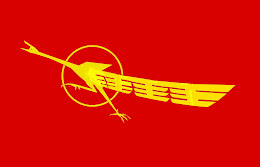








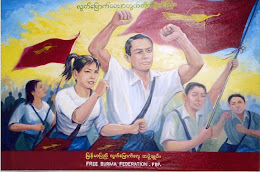





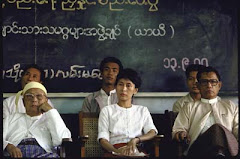

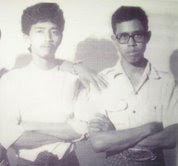

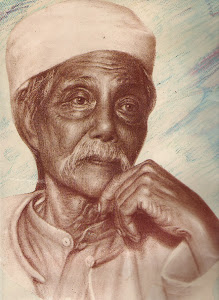

No comments :
Post a Comment